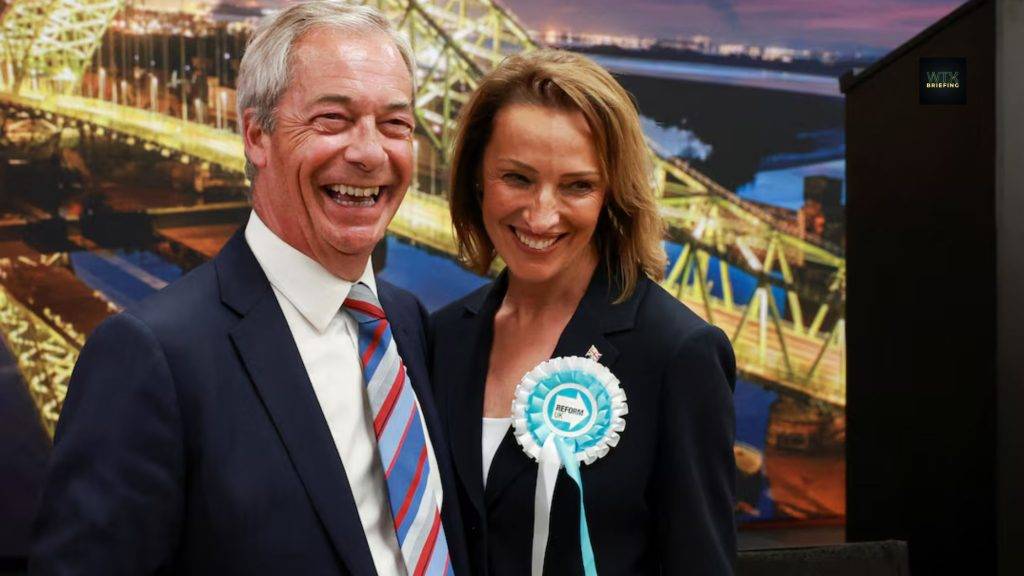Early indications suggest Reform gains in England local elections yesterday will not only be a big boost for Nigel Farage’s party but a warning to both Labour and the Conservatives – and a dent in the ego of traditional parties. The sweeping gains made by Reform suggest Britain might be moving away from the traditional two-party dominance and into a new era of politics.
The full results won’t be available until later today – and there’s still a lot of counting to do, but so far things are looking good for the far-right party.
Reform gains in England local elections is a warning to Labour & Tories
Keir Starmer told to ‘start listening’ after Reform makes sweeping local election gains
Explainer: The headline uses sensational language with “sweeping” to exaggerate Reform’s gains and implies criticism of Keir Starmer by using the directive “told to ‘start listening’”, suggesting he is out of touch. This framing may skew perception by emphasising conflict and urgency.
- The Guardian says Nigel Farage’s Reform gains have led to the prime minister being told to ‘start listening’ as Farage’s rightwing party ‘delivers a blow to Labour in its heartland.’ The paper says Labour won the West of England mayoralty where it expected competition from the Greens – but it was Reform that pipped the Greens to second in a place that is heavily left-leaning.
Nigel Farage’s Reform snatches Labour safe seat after knife-edge vote
Explainer: The headline uses dramatic verbs like “snatches” and “knife-edge” to heighten tension and portray the event as a dramatic upset, amplifying the sense of political turmoil. It frames Reform’s win as a shock, potentially overstating the significance.
- Politico says Reform snatched ‘Labour’s safe seat after knife-edge vote’. “We are now the opposition party in the U.K. to Labour, and the Tories are a waste of space,” Farage told reporters in Runcorn.
Reform has put the two traditional parties on notice – and we don’t know where this ends
Explainer: The phrase “put the two traditional parties on notice” uses confrontational language to suggest a major threat, while “we don’t know where this ends” introduces uncertainty and drama, fuelling a sense of political crisis.
- Sky News says Reform’s wins have put traditional political parties on notice ‘and we don’t know where this ends.’ The significance of the local election results will be argued for years but the gains show that British politics is being reshaped for a new era – which leans greater political unpredictability and challenges for the main parties.
The Reform revolution has begun
Explainer: This headline uses hyperbolic and emotive language—calling it a “revolution”—to exaggerate Reform’s impact and create a sense of dramatic upheaval, which may not align with the actual scale of events.
- The Daily Telegraph calls it a ‘revolution’ saying many ‘prayed the constituency was immune to Farage because the old majority was so large and it’s so close to Labour-loving Liverpool – but the six vote margin indicates that within England at least, there’s no no-go area for Reform.



